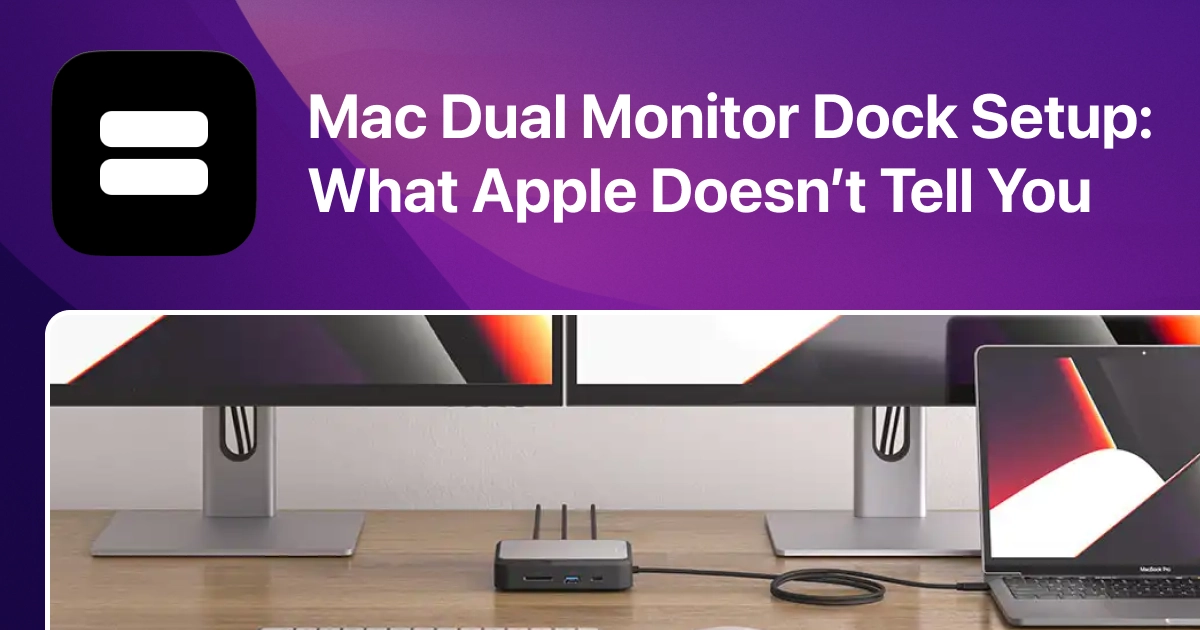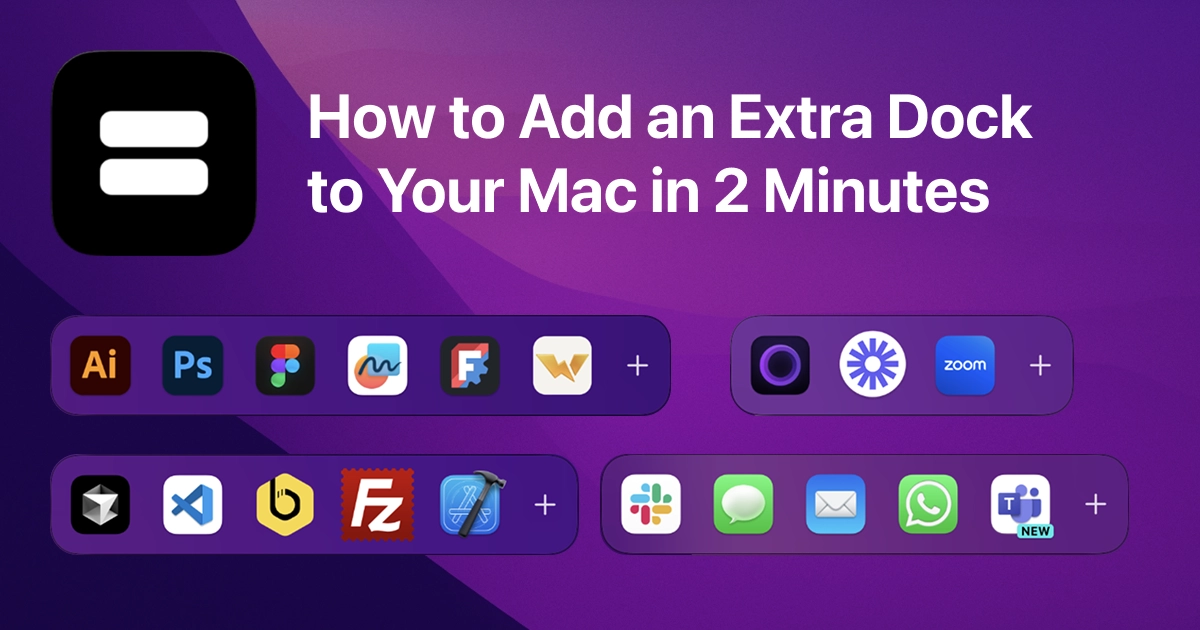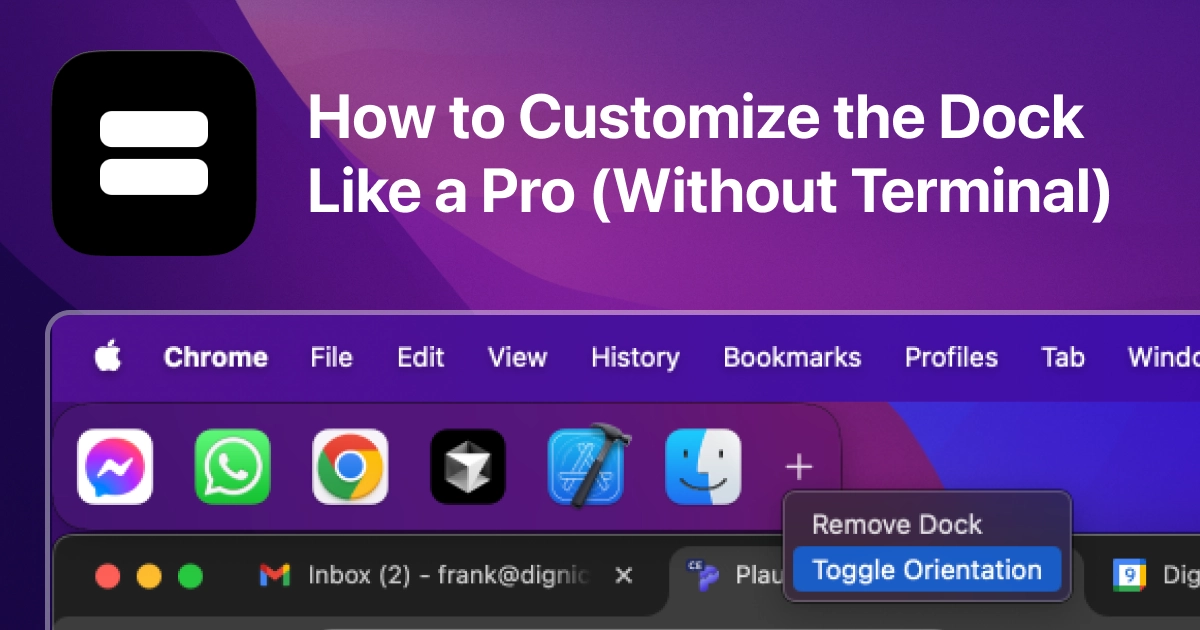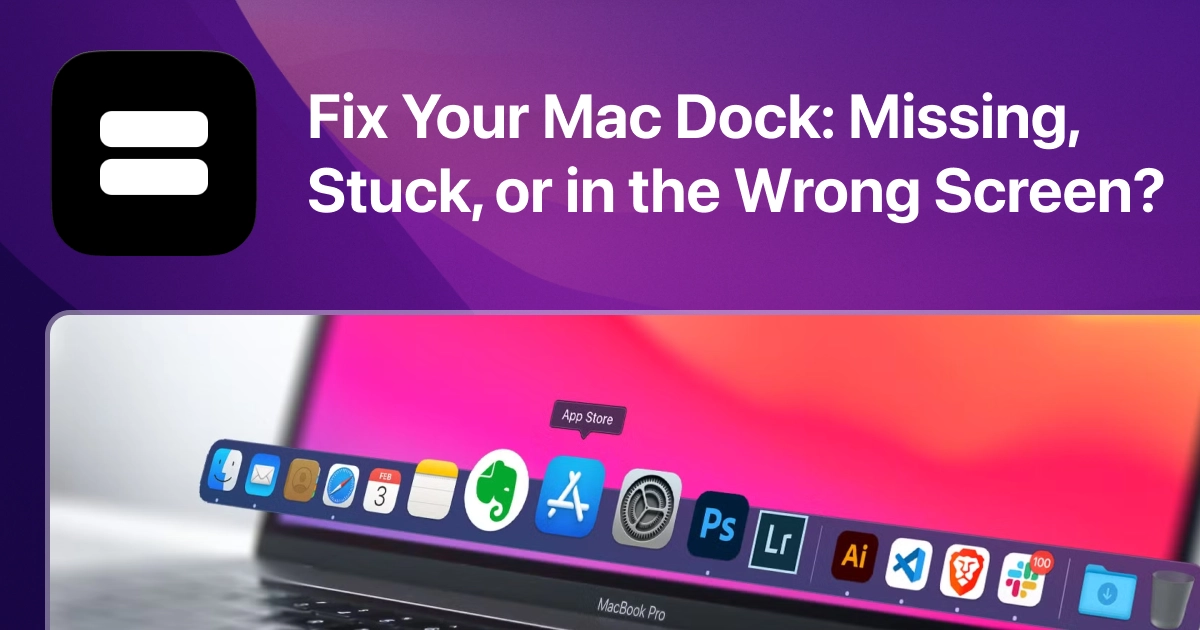macOS Dual Monitor Dock Setup: What Apple Doesn’t Tell You

If you’re running a dual-monitor setup on macOS, you’ve likely asked:
“Why does the Dock only show on one screen?” > “Why does it jump between displays whenever I move my mouse?”
It’s one of macOS’s most frustrating limitations: you only get one Dock, and it lives on your active monitor.
In this article, we’ll explain why this happens, and how to set up a better, more customizable dock experience — one that actually works with multiple monitors.
🤦 Why macOS Only Shows One Dock
Here’s the deal: Apple’s Dock is coded to appear on the screen that’s currently active — meaning, the one where your mouse touches the bottom edge.
You can’t:
- Lock it to both screens
- Duplicate it
- Pin it in different positions per monitor
This is by design. But for anyone using two or more monitors daily — especially developers, designers, or productivity nerds — it’s a huge workflow killer.
😡 Common Complaints from Dual Monitor Mac Users
If this sounds familiar, you’re not alone:
- “I keep moving my mouse to the second screen but the Dock isn’t there.”
- “I want a dock for each screen so I don’t keep switching focus.”
- “Can I have a permanent Dock on both monitors?”
Unfortunately, Apple doesn’t currently allow this — and even in macOS Sonoma, this behavior hasn’t changed.
✅ The Better Way: Docks on Every Monitor
Enter ExtraDock — a lightweight macOS utility that solves this exact problem.
With ExtraDock, you can:
- Create multiple floating docks across any screen
- Customize each one with different apps
- Keep the original macOS Dock intact (no system hacks)
- Improve speed, focus, and flow on dual displays
It’s the Dock experience Apple never shipped.
🛠️ How to Set Up ExtraDock for Dual Monitors
- Download ExtraDock
- Install & Open the app and grant permissions (once)
- Click “Create New Dock”
- Drag the Dock to your second monitor — and pin to top, bottom, left, or right
- Repeat if needed for a third screen or different layout
You now have permanent, screen-pinned docks — no more switching, no more chasing.
💡 Real-World Use Cases
Here’s how Mac users are putting ExtraDock to work:
- 👨💻 A developer puts communication apps (Slack, Mail) on the left monitor, and code tools on the right.
- 🎨 A designer pins Figma, Photoshop, and asset folders to a side Dock on their tablet display.
- 📊 A remote worker keeps folders and productivity tools on a vertical monitor, freeing up main space.
👉 Ready to Stop Fighting Your Dock?
The macOS Dock was built for laptops. ExtraDock is built for modern workspaces — multi-monitor, high-performance, flow-state setups.
Give yourself a better way to work.
🔗 Related Reads
- How to Add an Extra Dock to Your Mac in 2 Minutes
- Floating Dock on macOS: Myth or Possibility?
- macOS Dock Alternatives Compared: From DragThing to ExtraDock
Written by Frank Karro, indie dev behind ExtraDock — because one Dock is never enough.


